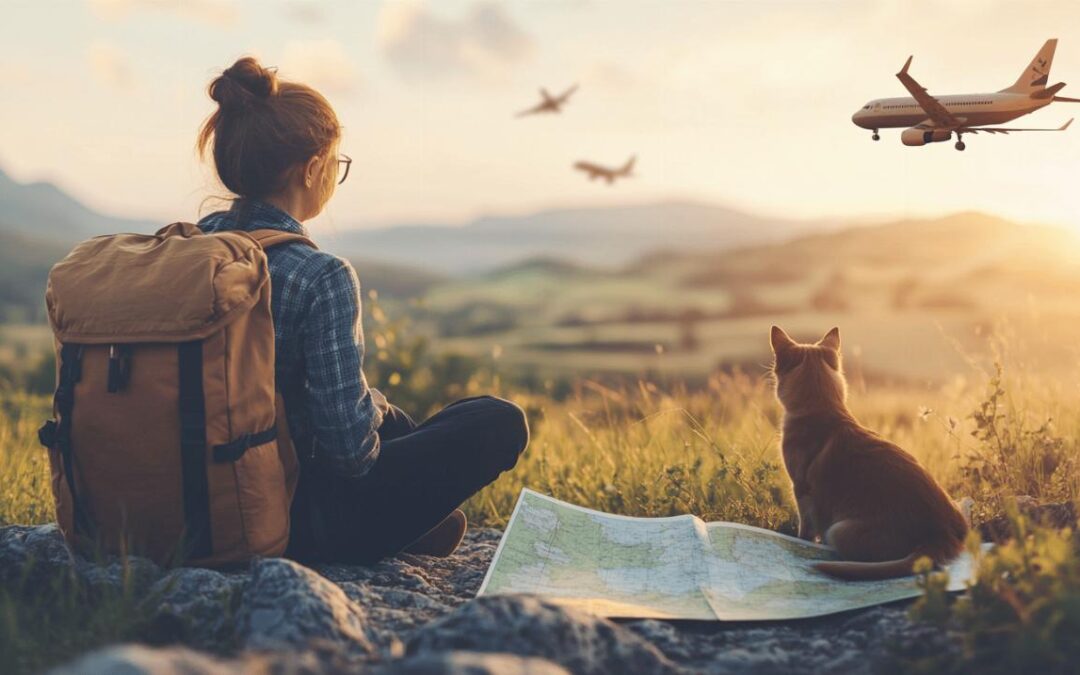Embarking on a journey starts long before you board the plane. By mastering travel planning techniques, you can minimize stress and maximize enjoyment during your adventures around the world.
Smart preparation strategies
The key to stress-free travel lies in thoughtful planning. When you invest time organizing your trip beforehand, you create space to truly enjoy your destination rather than worrying about logistics.
Creating effective packing lists
Systematic packing saves time and prevents last-minute scrambles. Place everything in the same location every time you pack, which can reduce packing time for a two-week trip to just 20 minutes. Make your documentation a priority by carrying three copies of your passport stored in different places. Many frequent travelers even memorize their passport number for quick form completion. For international journeys, verify vaccination requirements at least 4-6 weeks before departure to arrange for Hepatitis, Typhoid, Yellow Fever or other necessary immunizations. You can find comprehensive packing guides and destination-specific requirements on preparatuviaje.es which offers valuable recommendations for organizing your adventure.
Digital organization tools
Modern travelers benefit greatly from digital solutions that streamline the planning process. Family and solo travel wallets, passport holders, and electronic cases protect your essentials while keeping them accessible. When selecting travel accessories, look for premium materials like cowhide leather that offer durability for frequent use. Most digital planning platforms now feature offline access to your itinerary, allowing you to review flight details, accommodation information, and activity reservations even without internet connection. Many experienced travelers follow a simple rule about minor expenses—avoid stressing over items costing $10 or less, focusing energy instead on significant aspects of your journey.
Timing your travel right
Planning your adventures strategically can transform your travel experience from stressful to seamless. Smart timing decisions before and during your trip play a crucial role in creating memorable journeys without unnecessary pressure. Making thoughtful choices about when to travel and how to structure your days abroad can dramatically reduce common travel frustrations.
When preparing for your next adventure, consider not just where you'll go but precisely when and how you'll organize your days. The right timing choices can lead to significant cost savings, fewer crowds, and a more relaxed pace that allows you to truly enjoy your destination.
Booking during off-peak seasons
Selecting off-peak travel periods offers multiple advantages that enhance your overall experience. During these quieter times, you'll typically find more affordable flight and accommodation options, creating substantial savings that you can redirect toward experiences at your destination. Popular attractions become more accessible with shorter wait times and fewer tourists in your photos.
Research your destination's tourism patterns and look for the sweet spots between high and low seasons when weather remains pleasant but crowds have thinned. Many destinations offer nearly identical experiences during shoulder seasons, but with significantly reduced prices and population density. This approach not only makes your travel planning more economical but also creates opportunities for more authentic local interactions away from the tourist masses.
Building buffer days into your itinerary
Creating breathing room in your travel schedule might seem counterintuitive when trying to maximize your time abroad, but buffer days are invaluable for reducing stress. Rather than scheduling activities for every moment, incorporate flexible days that accommodate unexpected delays, spontaneous discoveries, or simply time to rest. This breathing room becomes especially valuable for international travel where jet lag, travel fatigue, or transportation issues might arise.
Start by adding at least one buffer day at the beginning of your trip to adjust to a new time zone and recover from long flights. Similarly, incorporate a buffer before returning home to organize souvenirs, complete any last-minute shopping, or revisit favorite spots. Throughout your journey, avoid scheduling consecutive high-intensity days that might lead to exhaustion. These strategic pauses help maintain your energy and enthusiasm while providing space for the unplanned moments that often become travel highlights.

